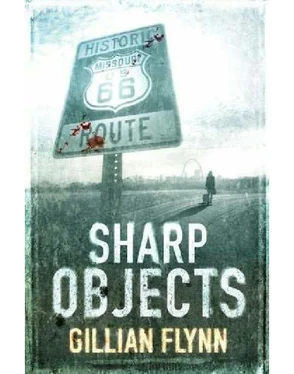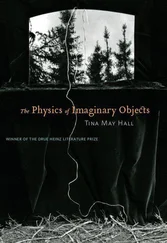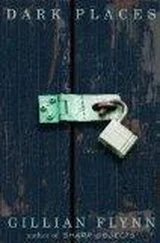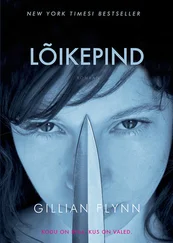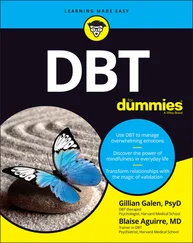Flynn, Gillian - Sharp_Objects
Здесь есть возможность читать онлайн «Flynn, Gillian - Sharp_Objects» весь текст электронной книги совершенно бесплатно (целиком полную версию без сокращений). В некоторых случаях можно слушать аудио, скачать через торрент в формате fb2 и присутствует краткое содержание. Жанр: Старинная литература, на русском языке. Описание произведения, (предисловие) а так же отзывы посетителей доступны на портале библиотеки ЛибКат.
- Название:Sharp_Objects
- Автор:
- Жанр:
- Год:неизвестен
- ISBN:нет данных
- Рейтинг книги:5 / 5. Голосов: 1
-
Избранное:Добавить в избранное
- Отзывы:
-
Ваша оценка:
- 100
- 1
- 2
- 3
- 4
- 5
Sharp_Objects: краткое содержание, описание и аннотация
Предлагаем к чтению аннотацию, описание, краткое содержание или предисловие (зависит от того, что написал сам автор книги «Sharp_Objects»). Если вы не нашли необходимую информацию о книге — напишите в комментариях, мы постараемся отыскать её.
Sharp_Objects — читать онлайн бесплатно полную книгу (весь текст) целиком
Ниже представлен текст книги, разбитый по страницам. Система сохранения места последней прочитанной страницы, позволяет с удобством читать онлайн бесплатно книгу «Sharp_Objects», без необходимости каждый раз заново искать на чём Вы остановились. Поставьте закладку, и сможете в любой момент перейти на страницу, на которой закончили чтение.
Интервал:
Закладка:
That summer, other things happened. I became quite suddenly, unmistakably beautiful. It could have fallen either way. Marian was the confirmed beauty: big blue eyes, tiny nose, perfect pointy chin. My features changed by the day, as if clouds floated above me casting flattering or sickly shadows on my face. But once it was settled—and we all seemed to realize it that summer, the same summer I first found blood speckling my thighs, the same summer I began compulsively, furiously masturbating—I was hooked. I was taken with myself, an incredible flirt in any mirror I could find. Unabashed as a colt. And people loved me. I was no longer the pity case (with, how weird, the dead sister). I was the pretty girl (with, how sad, the dead sister). And so I was popular.
It was that summer, too, that I began the cutting, and was almost as devoted to it as to my newfound loveliness. I adored tending to myself, wiping a shallow red pool of my blood away with a damp washcloth to magically reveal, just above my naval: queasy. Applying alcohol with dabs of a cottonball, wispy shreds sticking to the bloody lines of: perky. I had a dirty streak my senior year, which I later rectified. A few quick cuts and cunt becomes can’t, cock turns into back, clit transforms to a very unlikely cat, the l and i turned into a teetering capital A.
The last word I ever carved into myself, sixteen years after I started: vanish.
Sometimes I can hear the words squabbling at each other across my body. Up on my shoulder, panty calling down to cherry on the inside of my right ankle. On the underside of a big toe, sew uttering muffled threats to baby, just under my left breast. I can quiet them down by thinking of vanish, always hushed and regal, lording over the other words from the safety of the nape of my neck.
Also: At the center of my back, which was too difficult to reach, is a circle of perfect skin the size of a fist.
Over the years I’ve made my own private jokes. You can really read me. Do you want me to spell it out for you? I’ve certainly given myself a life sentence. Funny, right? I can’t stand to look at myself without being completely covered. Someday I may visit a surgeon, see what can be done to smooth me, but now I couldn’t bear the reaction. Instead I drink so I don’t think too much about what I’ve done to my body and so I don’t do any more. Yet most of the time that I’m awake, I want to cut. Not small words either. Equivocate. Inarticulate. Duplicitous. At my hospital back in Illinois they would not approve of this craving.
For those who need a name, there’s a gift basket of medical terms. All I know is that the cutting made me feel safe. It was proof. Thoughts and words, captured where I could see them and track them. The truth, stinging, on my skin, in a freakish shorthand. Tell me you’re going to the doctor, and I’ll want to cut worrisome on my arm. Say you’ve fallen in love and I buzz the outlines of tragic over my breast. I hadn’t necessarily wanted to be cured. But I was out of places to write, slicing myself between my toes— bad, cry —like a junkie looking for one last vein. Vanish did it for me. I’d saved the neck, such a nice prime spot, for one final good cutting. Then I turned myself in. I stayed at the hospital twelve weeks. It’s a special place for people who cut, almost all of them women, most under twenty-five. I went when I was thirty. Just six months out. Delicate times.
Curry came to visit once, brought yellow roses. They chiseled off all the thorns before he was allowed into the reception room, deposited the shards in plastic containers—Curry said they looked like prescription bottles—which they locked away until the trash pickup came. We sat in the dayroom, all rounded edges and plush couches, and as we talked about the paper and his wife and the latest news in Chicago, I scanned his body for anything sharp. A belt buckle, a safety pin, a watch fob.
“I’m so sorry, my girl,” he said at the end of his visit, and I could tell he meant it because his voice sounded wet.
When he left I was so sick with myself I vomited in the bathroom, and as I was vomiting, I noticed the rubber-covered screws at the back of the toilet. I pried the cap off one and sanded the palm of my hand— I —until orderlies hauled me out, blood splurting from the wound like stigmata.
My roommate killed herself later that week. Not by cutting, which was, of course, the irony. She swallowed a bottle of Windex a janitor left out. She was sixteen, a former cheerleader who cut herself above the thigh so no one would notice. Her parents glared at me when they came to pick up her things.
They always call depression the blues, but I would have been happy to waken to a periwinkle outlook. Depression to me is urine yellow. Washed out, exhausted miles of weak piss.
The nurses gave us meds to alleviate our tingling skins. And more meds to soothe our burning brains. We were body searched twice weekly for any sharp objects, and sat in groups together purging ourselves, theoretically, of anger and self-hatred. We learned not to turn on ourselves. We learned to blame. After a month of good behavior, we earned silky baths and massages. We were taught the goodness of touch.
My only other visitor was my mother, who I hadn’t seen in half a decade. She smelled of purple flowers and wore a jangling charm bracelet I coveted as a child. When we were alone, she talked about the foliage and some new town rule that required Christmas lights be taken down by January 15. When my doctors joined us, she cried and petted and fretted at me. She stroked my hair and wondered why I had done this to myself.
Then, inevitably, came the stories of Marian. She’d already lost one child, you see. It had nearly killed her. Why would the older (though necessarily less beloved) deliberately harm herself? I was so different from her lost girl, who— think of it —would be almost thirty had she lived. Marian embraced life, what she had been spared. Lord, she had soaked up the world— remember, Camille, how she laughed even in the hospital?
I hated to point out to my mother that such was the nature of a bewildered, expiring ten-year-old. Why bother? It’s impossible to compete with the dead. I wished I could stop trying.
Chapter Five
Alan was wearing white pants, the creases like folded paper, and a pale green oxford when I came down to breakfast. He sat alone at the massive mahogany dining-room set, his light shadow glowing in the polished wood. I peeked pointedly at the table legs to see what all the fuss of last night was about. Alan chose not to notice. He was eating milky eggs from a bowl with a teaspoon. When he looked up at me, a rubbery string of yolk swung like spit past his chin.
“Camille. Sit down. What can I have Gayla bring you?” He tinkled the silver bell next to him, and through the swinging kitchen door came Gayla, a former farm girl who ten years ago traded in pigs for daily work cleaning and cooking in my mother’s home. She was my height—tall—but couldn’t have weighed much more than a hundred pounds. The white starched nursing dress she wore as her uniform swayed loosely on her, like a bell.
My mother walked in past her, kissed Alan on the cheek, sat a pear in front of her place on a white cotton napkin.
“Gayla, you remember Camille.”
“Of course I do, Mrs. Crellin,” she said, pointing her vulpine face at me. Smiled with mismatched teeth and cracked, flaky lips. “Hi Camille. I have eggs, toast, fruit?”
“Just coffee please. Cream and sugar.”
“Camille, we picked up food just for you,” my mother said, nibbling on the plump end of the pear. “Have a banana at least.”
Читать дальшеИнтервал:
Закладка:
Похожие книги на «Sharp_Objects»
Представляем Вашему вниманию похожие книги на «Sharp_Objects» списком для выбора. Мы отобрали схожую по названию и смыслу литературу в надежде предоставить читателям больше вариантов отыскать новые, интересные, ещё непрочитанные произведения.
Обсуждение, отзывы о книге «Sharp_Objects» и просто собственные мнения читателей. Оставьте ваши комментарии, напишите, что Вы думаете о произведении, его смысле или главных героях. Укажите что конкретно понравилось, а что нет, и почему Вы так считаете.
